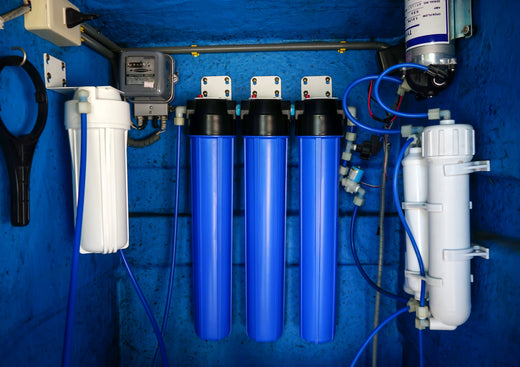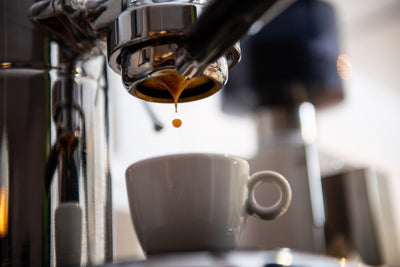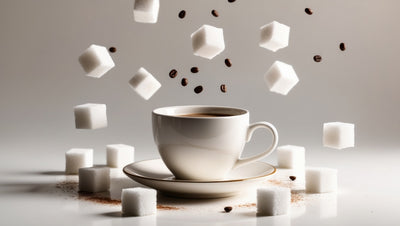
Why use filtered water for coffee?
Most cafés and coffee shops use filtered water to craft their coffees. But have you considered whether you should filter your water at home?
Water quality varies dramatically from region to region. If you live in an area where the taste of the water is unpleasant, you probably already filter your water. I grew up in Kent and didn’t realise quite how bitter the water there was until I moved elsewhere.
I certainly remember the coffee I made in a hotel during a short visit to Kent after years of living away. I had forgotten about the bad water and on arrival at my hotel, I simply filled up the kettle from the tap and made myself a much-needed brew. But when I took my first sip, I was forced to run to the bathroom to spit it out! My next task was to visit the petrol station next door to invest in some bottled water.
Even if the local water tastes perfectly fine, there are good reasons why you should filter it, if you wish to enjoy the finest coffee and to protect your equipment.
Why is water for coffee so important?
Water typically makes up 98% of coffee and so is guaranteed to impact its taste. It is the water that dissolves the coffee. Water can do this as it contains hydrogen atoms with positive electrical charges and oxygen atoms with negative charges. The opposing polarities of the atoms break the bonds of molecules in coffee causing them to dissolve.
In addition, water contains minerals which will build up in coffee makers, impacting their performance and causing malfunctions. Those minerals will also affect the flavour of coffee and can completely ruin it!
What is the right kind of water?
Water isn’t made up solely of hydrogen and oxygen. It also contains a variety of salts, minerals, and other impurities including calcium, magnesium and bicarbonate. All are essential for coffee making but you can have too much of a good thing!
Calcium is essential for coffee extraction while magnesium binds flavour compounds. Bicarbonate controls the PH of the water and at low levels will add subtle sweetness. However, too much bicarbonate will lend a salty, bitter taste to water.
The overload of minerals in hard water can overpower complex flavour elements in coffee and ruin the aroma. Soft water contains too few minerals and so can lack sticky properties, limiting extraction and muting flavour in the process.
So, neither hard nor soft water is good for coffee brewing!
Research has shown that the total mineral content of water is important when brewing but that the ratio between total hardness and carbonate hardness (alkalinity) is even more crucial. A 2:1 relationship is ideal.
Are chemicals added to tap water in the UK?
Unfortunately, in addition to the minerals that naturally occur in water, tap water may feature additives. Chlorine is added to water supplies to kill harmful bacteria and it can influence the flavour of your drinks. Fluoride can occur naturally in water and is sometimes added to the mains supply as it reduces tooth decay.
Your tap water could also contain lead which is poisonous when ingested. It is rare to find lead in water, but it can leach into the system thanks to old, degraded pipework. There is a greater risk of lead entering mains water in soft water areas as the limescale in hard water inhibits lead contamination.
Is bottled water the solution?
Bottled water is an adequate solution in an emergency such as my hotel experience in Kent. After all, not being able to brew coffee is an emergency!
However, bottled water isn’t necessarily as safe as tap water. That’s because the existing regulations dictate that tap water is tested daily while bottled water should be tested monthly. It is also worth bearing in mind that the costs of buying bottled water quickly mount up and all those plastic bottles are bad for the environment.
How can you filter your water?
You could simply use a filter jug such as a BRITA jug to improve water quality. This is an inexpensive option but far from convenient. Systems that feed off your mains water are better choices if you can afford the up front costs. These systems include countertop devices, those that fit to specific taps, under sink units and whole house systems.
Water filtration systems vary in the way they remove impurities and so it is worth doing your research to discover the nature of your water and the most appropriate form of filtration to address any issues. There are five filtration methods that filtration systems utilise - activated carbon, ion exchange, reverse osmosis, mechanical and ultraviolet. Some filtration systems will feature more than one of these.
Activated carbon filtration
Activated carbon water filters reduce chlorine, chloroform, agricultural chemicals, organic substances, sediment, and magnesium. They feature charcoal that binds impurities to remove them from water.
Ion exchange
Ion exchange removes hard water minerals and radioactive material in addition to reducing lead. The filters contain a substance that exchanges one ion for another. For example, the filter may replace calcium with sodium. Ion exchange won’t remove many of the impurities found in water and so is primarily effective as a softener rather than a filter.
Reverse osmosis (RO)
RO filters push water through a membrane under pressure. Contaminants remain on one side of the membrane and purified water is pushed to the other side. RO is effective at removing fluoride, hexavalent chromium, arsenic, nitrates, nitrites, copper, radium and salt.
Mechanical
Mechanical water filters remove physical particles including sediment and waste matter. They feature foam or nylon floss that traps particles and are usually used for pre-filtration.
Ultraviolet
Environmentally friendly, ultraviolet lamps remove bacteria and viruses from water courtesy of different light frequencies.
Testing the water
If you are unsure whether water filtration would improve the quality of your coffee, why not conduct a test? Invest in bottled water and a filter pitcher. Brew your coffee using tap water, bottled water and filtered water in turn. You can then explore how the various waters impact your brews. You might be surprised at just how much water quality impacts coffee. There are good reasons why most commercial operations utilise water filtration.



Leave a comment